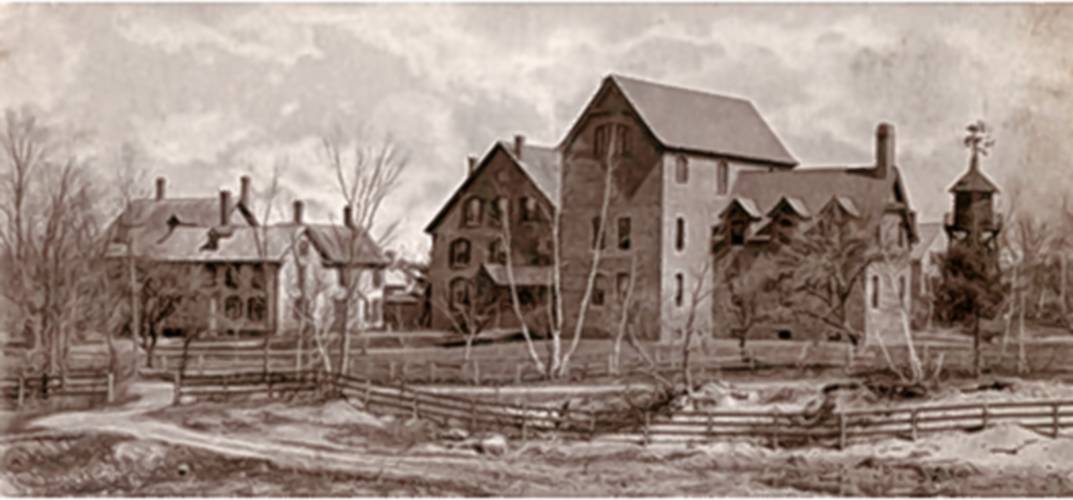
Coit House, shown after 1874, in Dunbarton Road (now Clinton Street) location across from the intersection with Silk Farm Road. Courtesy of Ohrstrom Library
By Jim Spain, President of the Capital City Sunrise Rotary Club
For The Monitor
There are times of the year when giving becomes very popular and the heart grows fond for those in need. Our community has always been fortunate to be home to many kind individuals and businesses that set annual objects and budgets that include many charitable causes. To this very day, the kindness bestowed upon the less fortunate is still very relevant and practiced by many. As Christmas approaches, we witness donations on so many levels: a hot dinner for the hungry, warm clothing to ward off the cold New Hampshire winter, services provided by professionals to those that are unable to pay, colorfully wrapped Christmas presents left under the Christmas tree for a child.
During the Civil War era in Concord, there were many children who found themselves unfortunate victims. These children, commonly referred to as War Orphans at that time, were destined for poverty and hardship due to circumstances that they were not able to control.
Many women did not survive childbirth and the children were raised in single-parent households by the surviving fathers. With life somewhat transient and the ability to travel limited, some single-parent households did not benefit from extended family where they could find help raising children. The mortality rate documents the life expectancy of the era to be much younger than it is today, eliminating grandparents in some cases.
As the War of the Rebellion grew and each community was required to meet a quota for enlistments, many young men, single parents, were destined to become soldiers during this Civil War. Short term arrangements were made, but the war lasted longer than any expectations at enlistment time. Sadly, many of the young soldiers who boarded the train south and left their children behind in Concord never returned. The children became casualties of war and consequently bequeathed the name orphan to the young children they left behind.
Many communities such as Concord rallied behind their local war orphans with much kindness and support. Sadly, some children were left on the streets to fend for themselves while others were fortunate to find families. The people of Concord, under the auspices of St. Paul’s School, were quick to organize and create a safe home for the orphaned children in April 1866 and the Concord Orphanage was both established and maintained for many years after the Civil War.
The orphaned children of Concord were fortunate to find support from St. Paul’s School where the rector and Mrs. Coit supported them. It was in 1874 the orphanage home was transferred from St Paul’s School to a board of trustees becoming an institution under the diocese.
The original charter for The Orphan Home of Concord that was approved on June 26, 1874, was amended in 1897 in the New Hampshire Senate and House of Representatives changing the name to Coit House and finding the orphanage to be free from taxation.
As funding continued through the generosity of the citizens of New Hampshire, a new brick building was constructed for the children on Dunbarton Road just across from Silk Farm Road.
As each and every Christmas approached many local clubs and organizations provided good cheer to the children at the Coit House. Clothing was provided, medical and educational support was donated, and there were entertainment and gifts along with a visit from Santa Claus.
At this special time of the year, it is important to reach deep within our hearts to help those in need. Food and shelter, gifts for the children or perhaps just a conversation with the elderly is appreciated more than you will ever know. Kind words from a kind person at Christmas hold much meaning for us, just as they did for our ancestors so very long ago.